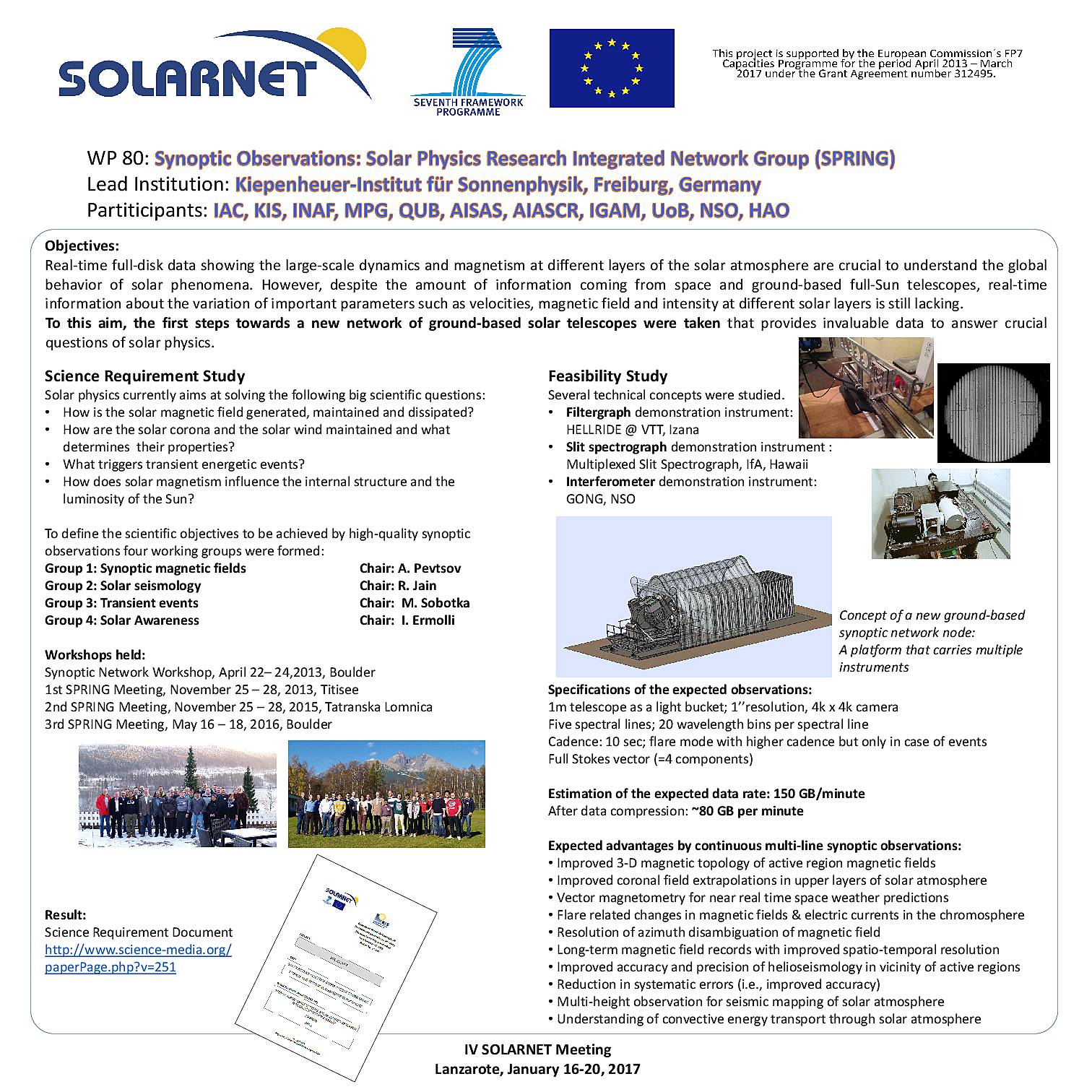Main category
Natural Sciences (Astrophysics and Astrononmy)
Abstract
High-resolution telescopes (such as SST, GREGOR and
the future EST and ATST) allow observations of only a small
fraction of the solar surface. Real-time context data showing the
large-scale dynamics and magnetism at different layers of the solar
atmosphere are crucial to understand the global behavior of solar
phenomena. However, despite the amount of information coming
from space and ground-based full-Sun telescopes, real-time
information about the variation of important parameters such as
velocities, magnetic field and intensity at different solar layers is
stilllacking. To this aim, a network of telescopes with a small
aperture but a large field-of-view can provide useful data to prepare
observing campaigns with large-aperture high-resolution telescopes
and complement the data taken with them. Distributed in a worldwide
network, these small apertures can represent an invaluable
supporting tool for coordinated observations with the major
infrastructures. Within this Joint Research Activity under Solarnet,
the definition of an adequate network of small telescopes, as well as
the most suited instrumentation was addressed.
Do you have problems viewing the pdf-file? Download poster
here
If the poster contains inappropriate content, please
report the poster. You will be redirected to the landing page.
